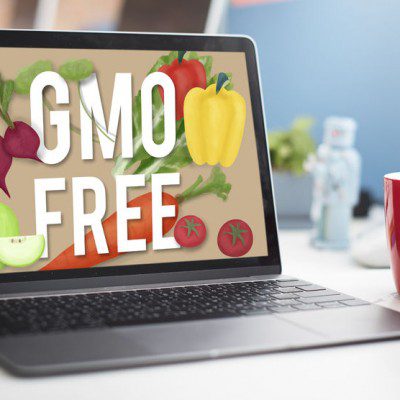
Searching for ways to bake without GMO ingredients?The federal GMO labeling bill S.764 passed in 2016 requires mandatory disclosure of foods and beverages containing bioengineered ingredients.4 Expected implementation will occur 2 years after extensive review by the USDA to determines what ingredients will need the new GMO designation.
Expect GMO labeled products to hit the the shelves no sooner than 2018. Consumers will be able to see with a glance at a label what products contain GMOs (genetically modified organism) and what products are GMO free.The new label should alleviate consumer concerns over food safety, environmental safety, and control the spread of GMOs in the food chain.1
It is important to remember that there is still no scientific evidence to back growing consumer beleifs that GMO free foods are healthier or contain less herbicides and pesticides. In fact, the American Association For The Advancement Of Science states that consuming foods containing ingredients derived from GM crops is no riskier than consuming the same foods containing ingredients from crop plants modified by conventional plant improvement techniques.3
If you have made up your mind on baking the GMO free way, it might be as easy as selecting organically certified ingredients. According to the USDA’s organic guidelines, GMO seeds may not be used in organic cops nor may meat considered organic be feed GMO animal feed. This means an organic farmer can’t plant GMO seeds, an organic cow can’t eat GMO alfalfa or corn, and an organic soup producer can’t use any GMO ingredients.2 Therefore, all organic products are GMO-free. However, you may already know that baking with organic ingredients will cost more than baking with just GMO-free ingredients. Check out our solutions for natural and organic bakers.
Trying to avoid GMO ingredients?
Here are some things to look for if you are trying to avoid GMO ingredients.
Five fruits and vegetables considered GMOs unless they are grown organically:
- Corn
- Soy
- Zucchini
- Yellow summer squash
- Papaya
GMO Ingredients commonly found in the baking industry:
- Beet Sugar
- Corn and corn products such as corn starch, High- Fructose Corn Syrup (HFCS), corn syrup, corn masa or corn meal
- Soy and soy products such as soymilk, soy lecithin, soy protein, soy flour or soy isoflavones
- Cottonseed oil
Remember, not all GMO free foods are certified organic. Many conventionally-grown fruits and vegetables are available at a lower cost. Apples, oranges, mangos, strawberries, broccoli, kale and many grains like wheat, rye, oat and rice are naturally GMO free, inexpensive and healthy. The new GMO labeling law gives consumers the right to choose what foods make it into their grocery carts and gives bakeries plenty of non-GMO alternatives to bake around with.
If you are still challenged on baking organically or GMO free, please contact me!
References
- Loureiro, Maria L. “GMO Food Labelling in the EU: Tracing ‘the Seeds of Dispute’.” EuroChoices 2.1 (2003).
- McEvoy, Miles. “USDA Blog » Organic 101: Can GMOs Be Used in Organic Products?” USDA.gov. USDA National Organic Program, 17 May 2013. https://www.ams.usda.gov/publications/content/can-gmos-be-used-organic-products. Accessed 17 Jan. 2017.
- Hemphill, Thomas A., and Syagnik Banerjee. “Genetically Modified Organisms and the U . S . Retail Food Labeling Controversy: Consumer Perceptions, Regulation, and Public Policy.” Business and Society Review 120.3 (2015): 435-464.
- S.764 — 114th Congress (2015-2016) National Bioengineered Food Disclosure Standard. Congress.gov www.congress.gov/bill/114th-congress/senate-bill/764/text Accessed 20 Jan. 2017.

